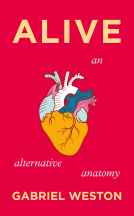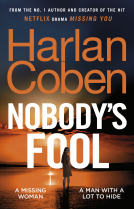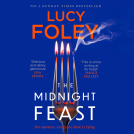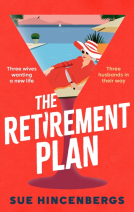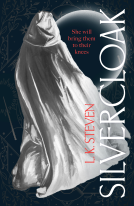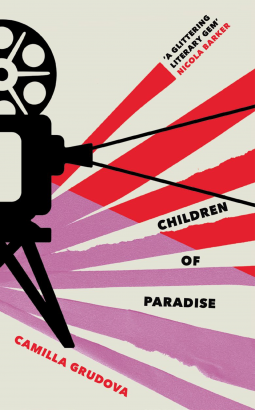
Children of Paradise
by Camilla Grudova
This title was previously available on NetGalley and is now archived.
Send NetGalley books directly to your Kindle or Kindle app
1
To read on a Kindle or Kindle app, please add kindle@netgalley.com as an approved email address to receive files in your Amazon account. Click here for step-by-step instructions.
2
Also find your Kindle email address within your Amazon account, and enter it here.
Pub Date 7 Jul 2022 | Archive Date 30 Jun 2022
Talking about this book? Use #ChildrenofParadise #NetGalley. More hashtag tips!
Description
A surreal, discomforting debut novel charts the fates of a ragtag group of cinema workers who are spat out by corporate takeover.
When Holly applies for a job at the Paradise - one of the city's oldest cinemas, squashed into the ground floor of a block of flats - she thinks it will be like any other shift work. She cleans toilets, sweeps popcorn, avoids the belligerent old owner, Iris, and is ignored by her aloof but tight-knit colleagues who seem as much a part of the building as its fraying carpets and endless dirt. Dreadful, lonely weeks pass while she longs for their approval, a silent voyeur. So when she finally gains the trust of this cryptic band of oddballs, Holly transforms from silent drudge to rebellious insider and gradually she too becomes part of the Paradise - unearthing its secrets, learning its history and haunting its corridors after hours with the other ushers. It is no surprise when violence strikes, tempers change and the group, eyes still affixed to the screen, starts to rapidly go awry...
Available Editions
| EDITION | Hardcover |
| ISBN | 9781838956318 |
| PRICE | £14.99 (GBP) |
Featured Reviews
 Reviewer 876149
Reviewer 876149
Known for her unnerving short-story collection The Doll’s Alphabet, this is Camilla Grudova’s debut novella. Grudova draws from her experiences after she left Canada for Scotland. Settled in Edinburgh, she worked as an usherette at the Cameo, an indie cinema later gobbled up by a large, money-grubbing corporation. From the nod to Marcel Carné in the title, onwards, this is saturated in film and film history, overflowing with references to classic films and actors. It’s narrated by Holly who, like Grudova, loves clowns and Chaplin. Holly takes a job at the Paradise cinema, once shiny and glorious, it’s now dilapidated and struggling. At first Holly’s snubbed by the rest of the staff but soon becomes part of their cultish. misfit band, spending her days and nights in their company. They scour the aisles for discarded money and drugs, and set up their own, after-hours film shows. They endure the sordid antics of customers, cleaning up the various bodily fluids that routinely coat the seats, unclogging the overflowing toilets and cleaning the rat-infested popcorn machine. Together they form a kind of society in miniature, away from the wider world, like the children in Cocteau’s Les Enfants Terribles or the characters in Bertolucci’s The Dreamers; subject only to the whims of manager Sally who seems to have stepped out of a frame from Sunset Boulevard. They live on minimum wage, scrounging and hustling to stay afloat but when the owner of the Paradise suddenly dies and the Paradise is taken over by a soulless chain, it becomes clear their sordid, shabbily-decadent existence was an idyll, a time of lost, fragile pleasures.
Grudova’s piece is atmospheric and unsettling, with a slightly gothic tinge, perhaps why she’s been compared to authors like Angela Carter. Her story’s richly detailed, highly visual in quality, unfolding in a leisurely yet gripping manner, gradually moving into slightly surreal, nightmarish territory, making me wonder if she’s also been influenced by writers like Bruno Schulz. The cinema itself is a major character here: its faded but extravagant interior housing a haunted, sinister space, rather like the ballet school in Argento’s Suspiria or The Overlook Hotel in The Shining. A place that bears the traces and scars of terrible events and hints at more to come. A fascinating story and an impressive take on contemporary capitalism and conformity. Although there are points when this falters, it still completely captured my attention from start to finish.




